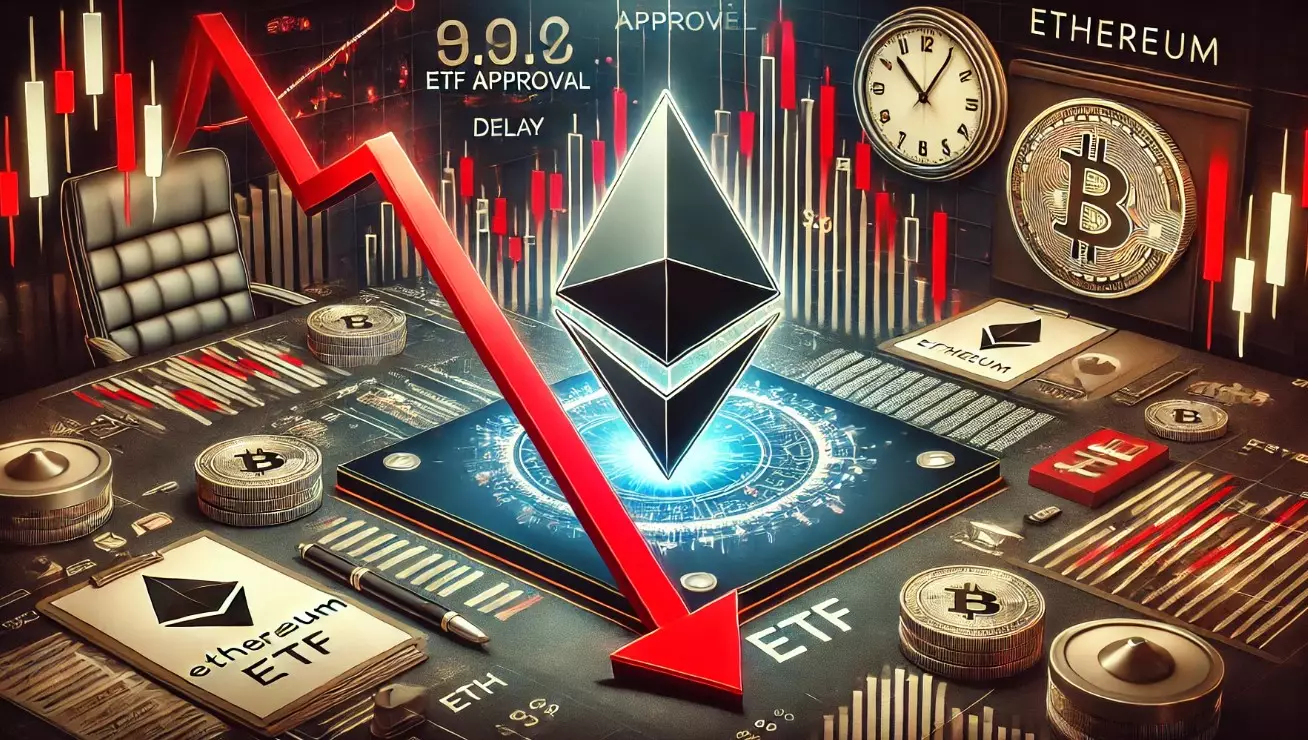The recent setback in the price of Ethereum (ETH) has left investors disappointed, as the cryptocurrency briefly surpassed the $3,500 mark before dropping back to the $3,400 support level. The delay in price movement can be attributed to the postponement of the full approval by the SEC for Ethereum ETF applications, which were originally anticipated to be approved by July 2 but have now been pushed back to July 8. Bloomberg ETF expert Erich Balchunas shared on social media that the SEC took additional time to provide feedback, resulting in a revised timeline for approval.
SEC Chair Gary Gensler had previously indicated that Ethereum ETFs would likely receive approval by “the end of the summer.” Currently, the SEC is reviewing and approving the S-1 forms, which represent the second step in launching spot Ethereum ETFs. Despite the delay, asset managers are optimistic about the SEC greenlighting the first US spot Ethereum ETF applications that directly invest in Ether, with expectations set for mid-July.
Prominent asset managers such as BlackRock Inc., Fidelity Investments, 21Shares, and Invesco have filings awaiting approval for Ethereum ETFs. Steve Kurz, head of asset management at Galaxy Digital, predicted the approval of an Ethereum ETF within the next couple of weeks. Galaxy Digital has filed for an Ether ETF, and Kurz expressed confidence in the process, highlighting their familiarity with the requirements based on their experience with the Bitcoin ETF.
The delay in Ethereum ETF approval has raised questions about the potential market demand for these products. Will Ether portfolios generate a similar level of demand as the historic debut of US spot-Bitcoin ETFs in January, which accumulated $52 billion in assets? While Ethereum ETFs may attract significant inflows in the first few months of trading, they may not reach the same volume of inflows as the newly approved Bitcoin ETF market.
Bitwise’s Chief Investment Officer (CIO), Matt Hougan, projected that Ethereum ETFs could see $15 billion in net inflows within their first 18 months of trading. To arrive at this estimate, Hougan considered the market capitalizations of Bitcoin and Ethereum, expecting investors to allocate to their respective exchange-traded products (ETPs) proportionally. He noted that US investors have invested $56 billion in Spot Bitcoin ETPs and anticipates this figure to reach $100 billion or more by the end of 2025. Hougan determined that Spot Ethereum ETFs would need to attract $35 billion in assets to match the Bitcoin ETFs, a process that could take around 18 months.
The delay in Ethereum ETF approval by the SEC has led to a setback in the price of Ethereum and raised questions about the potential market demand for these products. While asset managers remain optimistic about the approval of Ethereum ETFs, investors are keen to see how the market will respond once these products are launched. The projections for net inflows into Ethereum ETFs indicate a significant market potential, but only time will tell if these products can match the success of Bitcoin ETFs in terms of investor demand.

